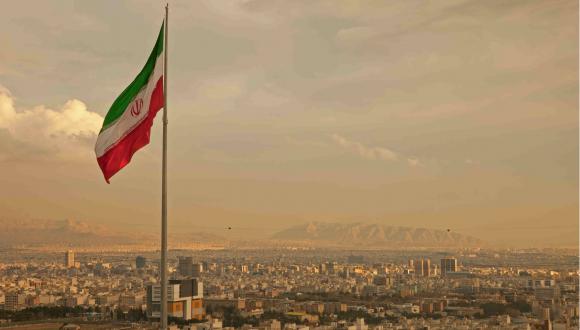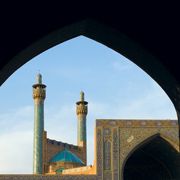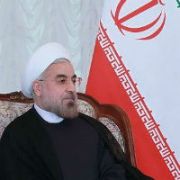The Day After: Coping With Iran
 In the eyes of both Iran’s supporters and rivals, the agreement on the parameters of its nuclear program and the gradual rescinding of international sanctions against it constituted a victory for Tehran.
In the eyes of both Iran’s supporters and rivals, the agreement on the parameters of its nuclear program and the gradual rescinding of international sanctions against it constituted a victory for Tehran.
For its disparate allies and sympathizers, ranging from Syria’s Bashar Assad and Hezbollah’s Hassan Nasrallah in Lebanon to the old warhorse of anti-Western Arab nationalist commentators, Egypt’s Mohamed Hassenein Heikal, the agreement was a welcome confirmation of Iran’s ability to withstand American and Israeli efforts to quash it and impose their own hegemony on the region. By contrast, most Sunni Arab states, and particularly Saudi Arabia, were aghast at the agreement, although, in contrast to Israel, their officials generally kept their public criticisms to a minimum.
However, veteran Saudi journalist and commentator Abdulrahman al-Rashed colorfully articulated what many thought privately: that Iran was like a monster tied to a tree that was now being unleashed to move about freely in the region. From this perspective, the worst part of the agreement was not the confirmation of Iran as a threshold nuclear power (even assuming that it would abide by the stipulated limitations), but rather that it would now be even more emboldened to continue projecting its power through regional allies and clients.
Hence, the specter of an Iranian-dominated Shia Crescent, stretching from Iraq to the Mediterranean, first invoked a decade ago by Jordan’s King Abdullah and Egypt’s Hosni Mubarak, seemed more threatening than ever to Saudi Arabia and its Sunni Arab allies, particularly since it now included extensions into the Gulf (Bahrain) and southern Arabia and the Red Sea (Yemen).
Alliance-building within the region has always been an integral component of Arab regimes’ survival kits. The problem for Saudi Arabia is that existing options for an anti-Iranian Sunni bloc are extremely limited. Within the Arab system, the only state with potential geopolitical weight – Egypt, Saudi Arabia’s traditional Arab ally since 1967 – is consumed with internal issues as the Sisi regime seeks to consolidate its authority, crush the Muslim Brotherhood opposition and overcome the jihadi-Islamic State insurgency in Sinai.
Moreover, the Egyptian-Saudi relationship is not tension free, as Cairo is extremely irritated over Riyadh’s recent contacts with Hamas, the rulers of Gaza. Sunni-dominated Iraq ceased to exist in 2003, and what is left of the Iraqi state is now well within Iran’s orbit. Most of the smaller states of the Saudi led-GCC bloc prefer dialogue and economic cooperation to confrontation with Iran, as demonstrated Kuwait’s and Qatar’s welcoming of Iranian Foreign Minister Mohammad Javad Zarif for a briefing on the agreement. Jordan is pivotal, but has little to offer other than its continued survival as a buffer state with a functioning authority.
What of the two large non-Arab Sunni Muslim states on the periphery of the region – Turkey and Pakistan? Publicly, Turkey has never expressed much concern over Iran’s nuclear program and was adamantly against possible US or Israeli military action against Iran. The progressive lifting of economic sanctions will benefit Turkey, which aims to double the level of bilateral trade to $30 billion (Turkey currently imports $10b. of oil and natural gas from Iran). But as the Turkish analyst Cengiz Çandar noted, Turkey could hardly view Iran’s rising regional role with equanimity.
Indeed, Foreign Minister Mevlut Cavusoglu’s response to the agreement was that Iran should reconsider its role in Syria, Iraq and Lebanon (the chances of that happening are nil). As for Pakistan, a fountainhead of anti- Shia Sunni radicalism, traditional ally of Saudi Arabia, and potential backer of a Saudi nuclear program, the end of the sanctions means that a long-delayed natural gas pipeline that will supply Iranian gas to Pakistan will now be completed, thus easing Pakistan’s chronic energy shortage.
A corollary to the general regional consensus regarding Iran’s negotiating success was a growing lack of faith in the US commitment to its traditional Arab allies, and even a fear of a grand US-Iranian bargain that would confer undisputed regional leadership on Iran. This fear is exaggerated, and flies in the face of a massive deepening of US-Gulf state security ties in recent years, as documented in a new and authoritative study by Anthony H. Cordesman of the Washington-based Center for Strategic and International Studies.
Nonetheless, perceptions shape reality, and the combination of Riyadh’s declining faith in Washington and a new and more assertive Saudi leadership suggests that the Saudis will try their best to counter Iran’s power projection by any possible means, as already displayed in Yemen. So far, however, its three-month bombing campaign there against the Iranian-backed Houthi rebels has yielded scant results, and at considerable cost in human lives.
The author is a Principal Research Fellow at the Moshe Dayan Center for Middle Eastern and African Studies, Tel Aviv University. The original article can be read here.






